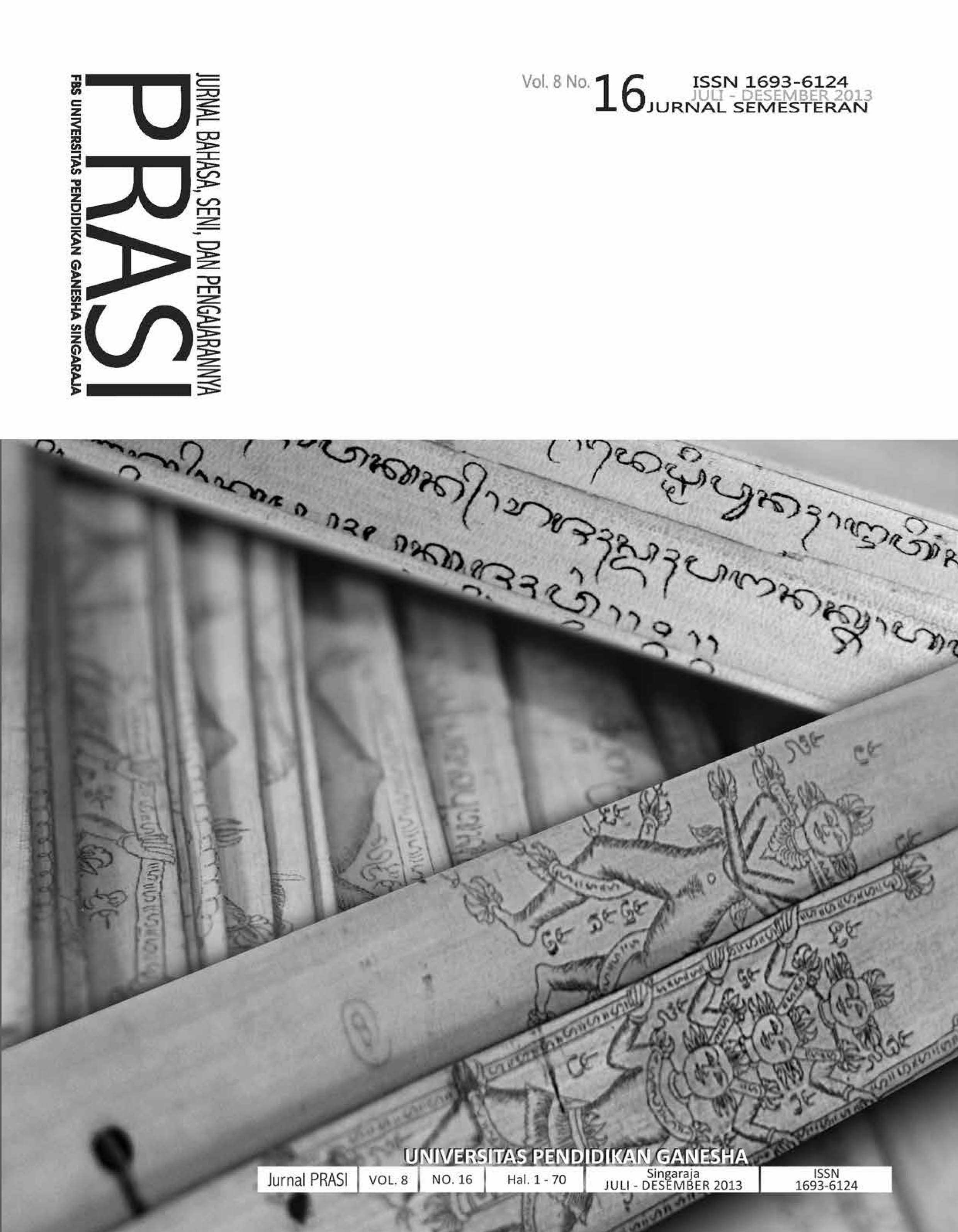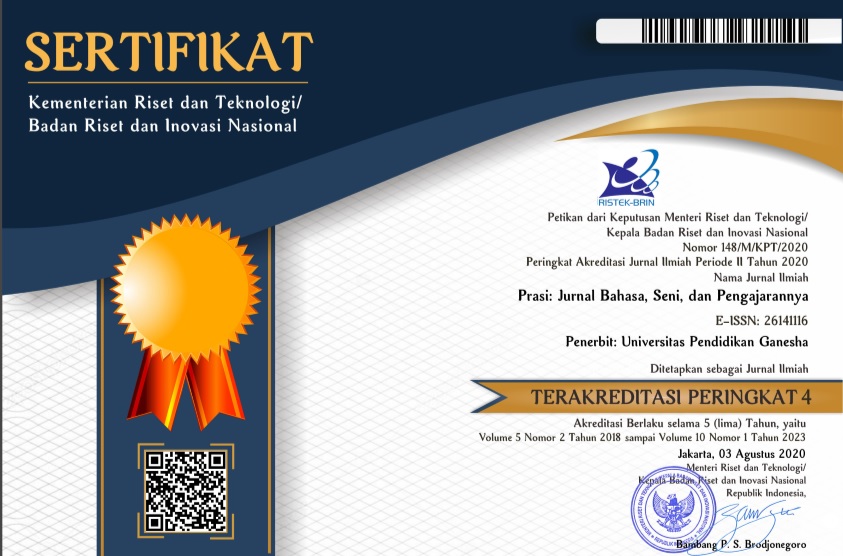AN ANALYSIS OF DERIVATIONAL AND INFLECTIONAL MORPHEMES IN NUSA PENIDA DIALECT
DOI:
https://doi.org/10.23887/prasi.v8i16.8993Abstract
Penelitian ini bertujuan untuk mendeskripsikan awalan dan akhiran di Dialek Nusa Penida (DNP) yang termasuk derivasi dan infleksi. Penelitian ini merupakan penelitian deskriptif kualitatif. Dua informan dari Nusa Penida telah dipilih berdasarkan kriteria yang telah ditentukan. Data dikumpulkan berdasarkan tiga teknik, yaitu: observasi, teknik perekaman, dan teknik wawancara (mendengarkan dan mencatat). Hasil penelitian menunjukkan bahwa ada dua jenis awalan derivasi di DNP; awalan {mΛ-} dan {m-} dan ada lima jenis awalan infleksi di DNP; awalan {n-}, {ŋ-}, {ñ-}, {m-} dan {Λ-}. Ada dua jenis akhiran derivasi di DNP; akhiran {-Λŋ} dan {-In} dan ada tiga jenis akhiran infleksi di DNP; akhiran {-ē}, {-Λŋ}, dan {-In}. Awalan dan akhiran di Dialek Nusa Penida yang termasuk derivasi adalah awalan {mΛ-} dan {m-} dan akhiran {-Λŋ}, dan {-in}. Awalan dan akhiran di Dialek Nusa Penida yang temasuk infleksi adalah awalan {n-}, {ŋ-}, {ñ-}, {m-}, dan {Λ-} dan akhiran {-ē}, {-Λŋ}, dan {-In}.
Kata-kata Kunci: morfem derivasi, morfem infleksi, dialek Nusa Penida
Downloads
Published
Issue
Section
License
Authors who publish with Prasi agree to the following terms:- Authors retain copyright and grant the journal the right of first publication with the work simultaneously licensed under a Creative Commons Attribution License (CC BY-SA 4.0) that allows others to share the work with an acknowledgment of the work's authorship and initial publication in this journal
- Authors are able to enter into separate, additional contractual arrangements for the non-exclusive distribution of the journal's published version of the work (e.g., post it to an institutional repository or publish it in a book), with an acknowledgment of its initial publication in this journal.
- Authors are permitted and encouraged to post their work online (e.g., in institutional repositories or on their website) prior to and during the submission process, as it can lead to productive exchanges, as well as earlier and greater citation of published work. (See The Effect of Open Access)


.png)
.png)









